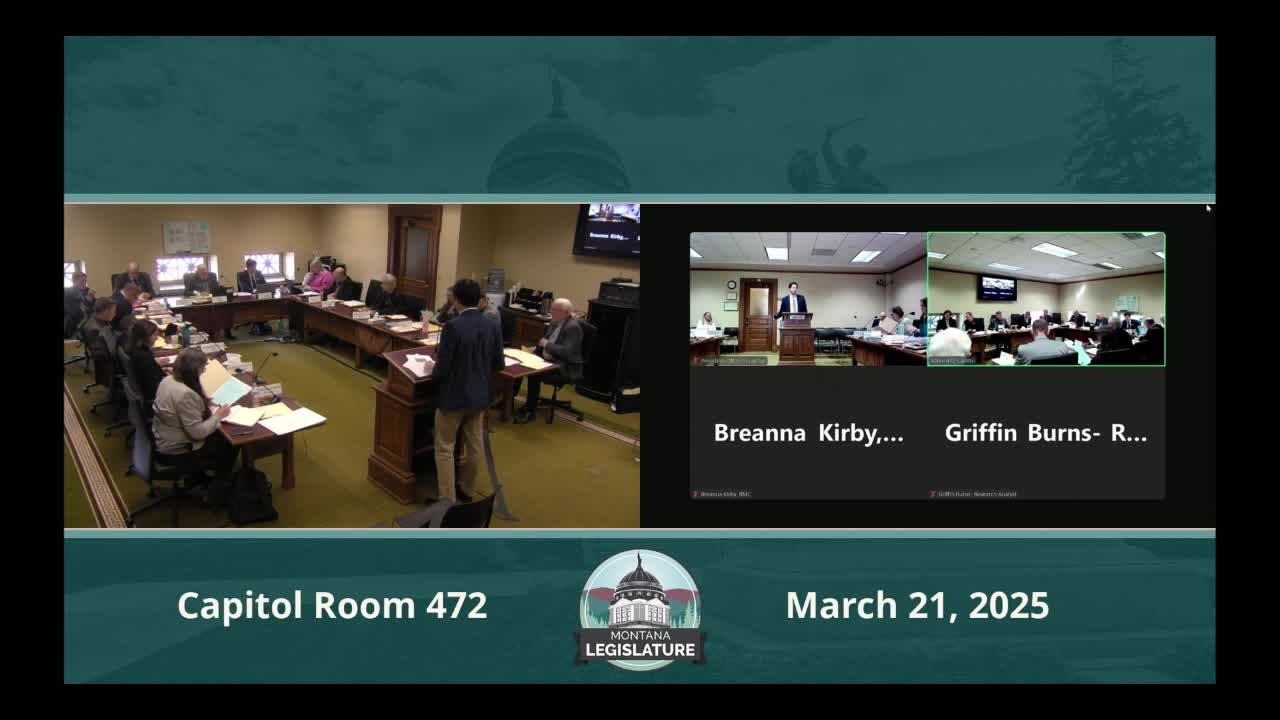Committee hears bill to limit use of foreign genomic technologies and require U.S. storage of sequencing data
Get AI-powered insights, summaries, and transcripts
Subscribe
Summary
Sponsor Daniel Zolnicov and the state Office of Consumer Protection supported a bill that would prohibit certain foreign genomic sequencing technologies and require that genetic sequencing data collected in Montana be stored and accessed only within the U.S. without individual written consent.
Daniel Zolnicov introduced Senate Bill 410 (Genomic Security Act) to the House Energy Committee, saying the measure would prohibit use of certain foreign genomic technologies and require that genetic sequencing information be maintained in the United States. "This is the Genomic Security Act saying that any genomic, sorry, genetic sequencing information has to be maintained in this country," Zolnicov said.
Brent Mead, Bureau Chief for the Office of Consumer Protection at the Montana Department of Justice, testified in support. Mead said federal reporting and international incidents motivated state-level safeguards: "We think this is a great bill that gives our office another tool to help protect Montana's personal private information from being misused," he told the committee. Mead referenced congressional attention and federal sanctions related to misuse of genomics data overseas.
Why it matters: The bill targets the hardware and software used to sequence genetic data and the geographic location of stored sequencing results. Committee members framed the bill as a privacy and national-security response to concerns that some foreign-produced sequencing equipment or service arrangements could be backdoored and that sequencing data stored abroad could be misused.
Key provisions and clarifications: Zolnicov said the bill has two parts: it would bar technologies produced by listed "foreign adversaries" and require that genetic sequencing data collected in Montana be stored on servers in the U.S. He said the bill's references to a federal foreign-adversary list use a date-specific citation that can be updated: "If that changes, we could always strike that moving forward." He also described an existing Montana law under which individuals "own their DNA," permitting deletion and limits on sharing; he said this bill focuses on sequencing equipment and the storage/access of sequence results.
Committee questions and answers: Representatives asked whether the bill would block all international sharing, whether storage restrictions would hinder research or patient care, and how the state would enforce the rule. Zolnicov said research and clinical care could use sequencers and software but that storage and remote access would be restricted without individual approval. On the foreign-adversary list, he said the bill as drafted references a date and could be amended to reference the federal list more flexibly.
A representative asked whether the bill would restrict companies such as genealogy firms; Zolnicov pointed to Montana's existing DNA privacy law and said individuals can approve sharing in specific cases (for example, parental waivers in clinical situations). A portion of the bill (section 5, line 15) authorizes reimbursement to facilities for replacement equipment; Zolnicov said that wording mirrors prior code but committee members questioned whether the state treasury routinely funds such replacements.
Closing: Zolnicov closed by urging committee support and noting federal discussion of the issue: "DC is talking about this. This is a big thing they're talking about in DC. The only difference is DC talks and we actually get the job done. So I ask that you guys vote for this one." The hearing concluded with no formal vote recorded that day.
Ending: The committee heard technical and policy questions and accepted supportive testimony from the Department of Justice's consumer-protection office; sponsor and staff indicated some drafting changes could follow.
